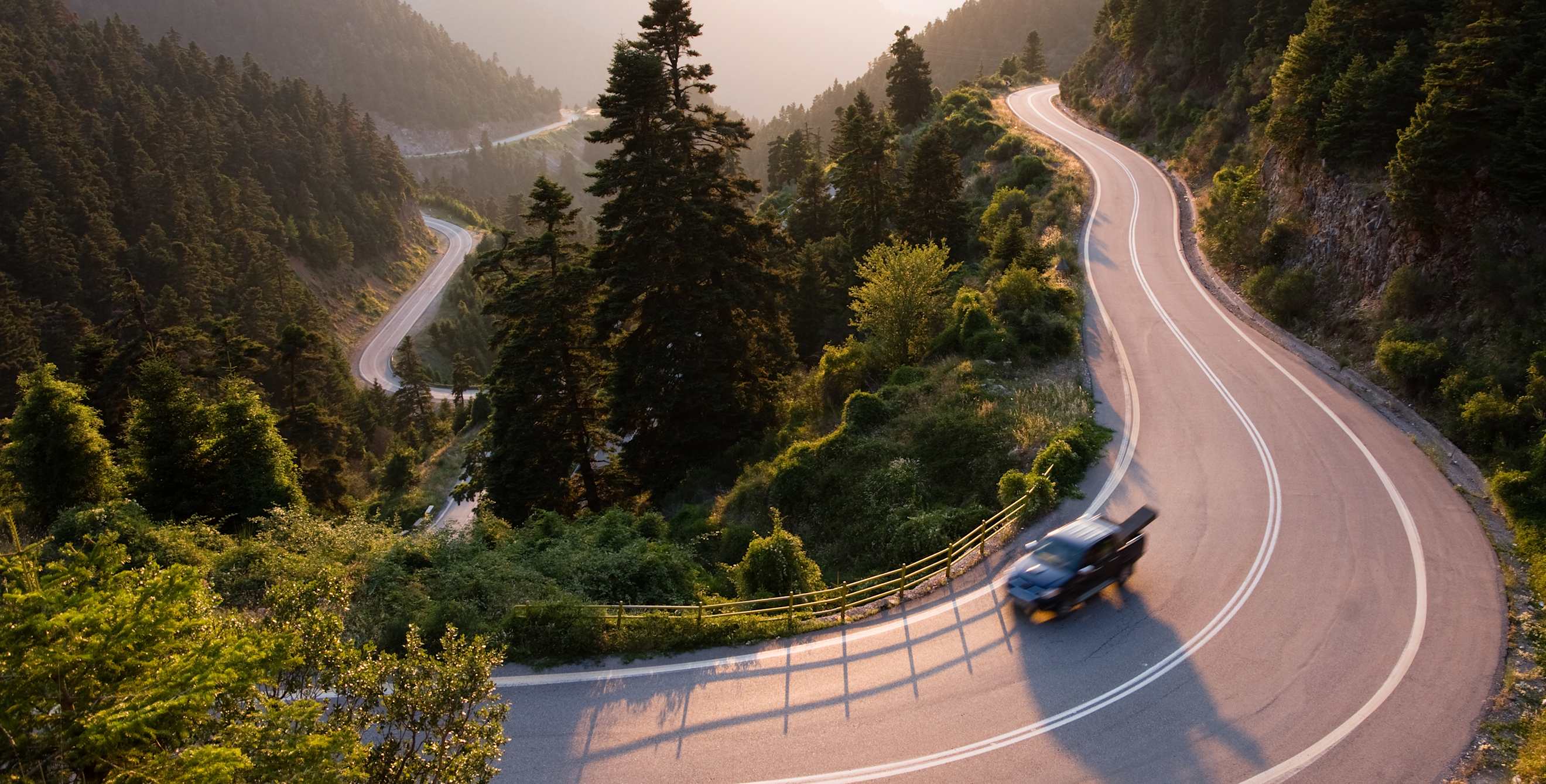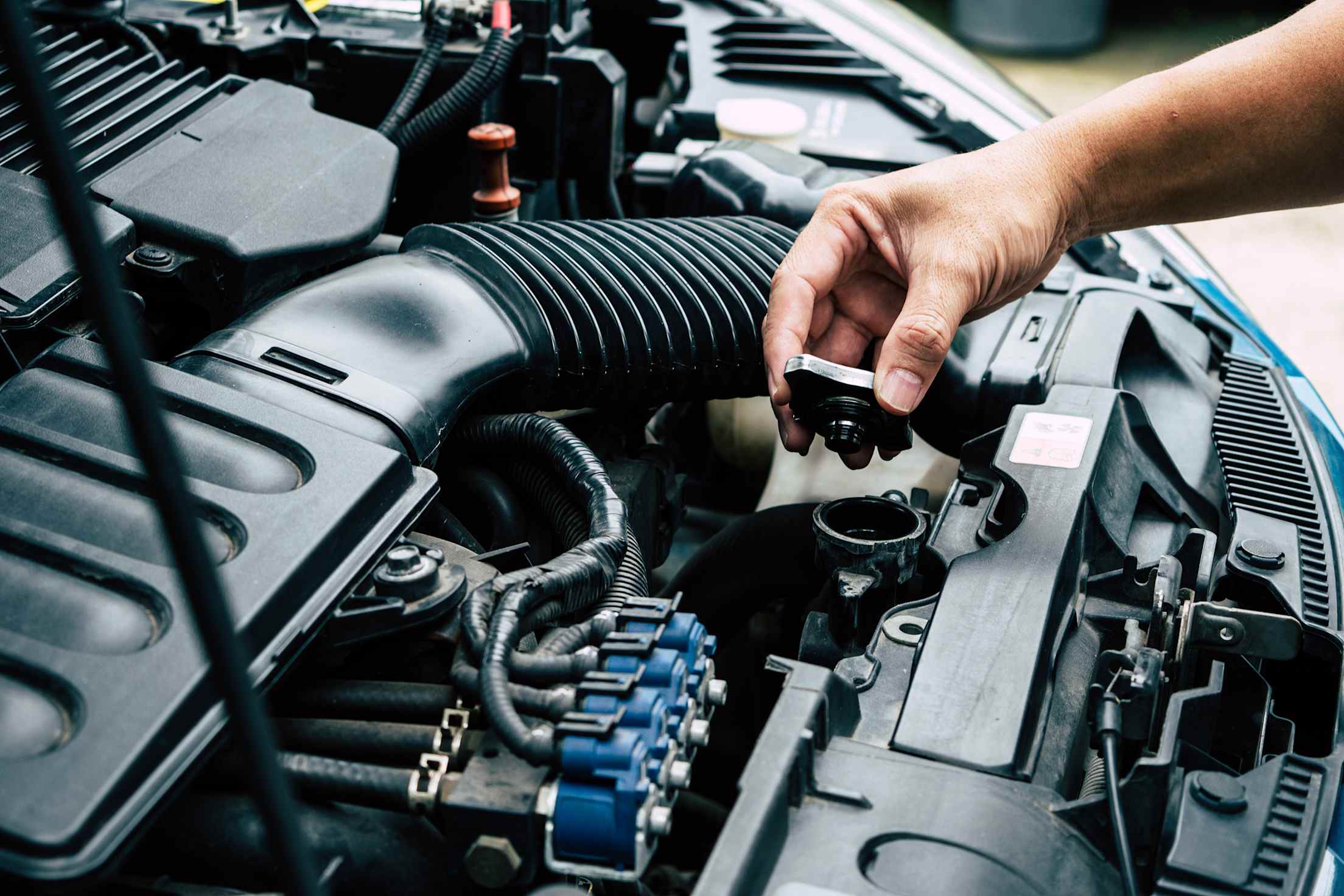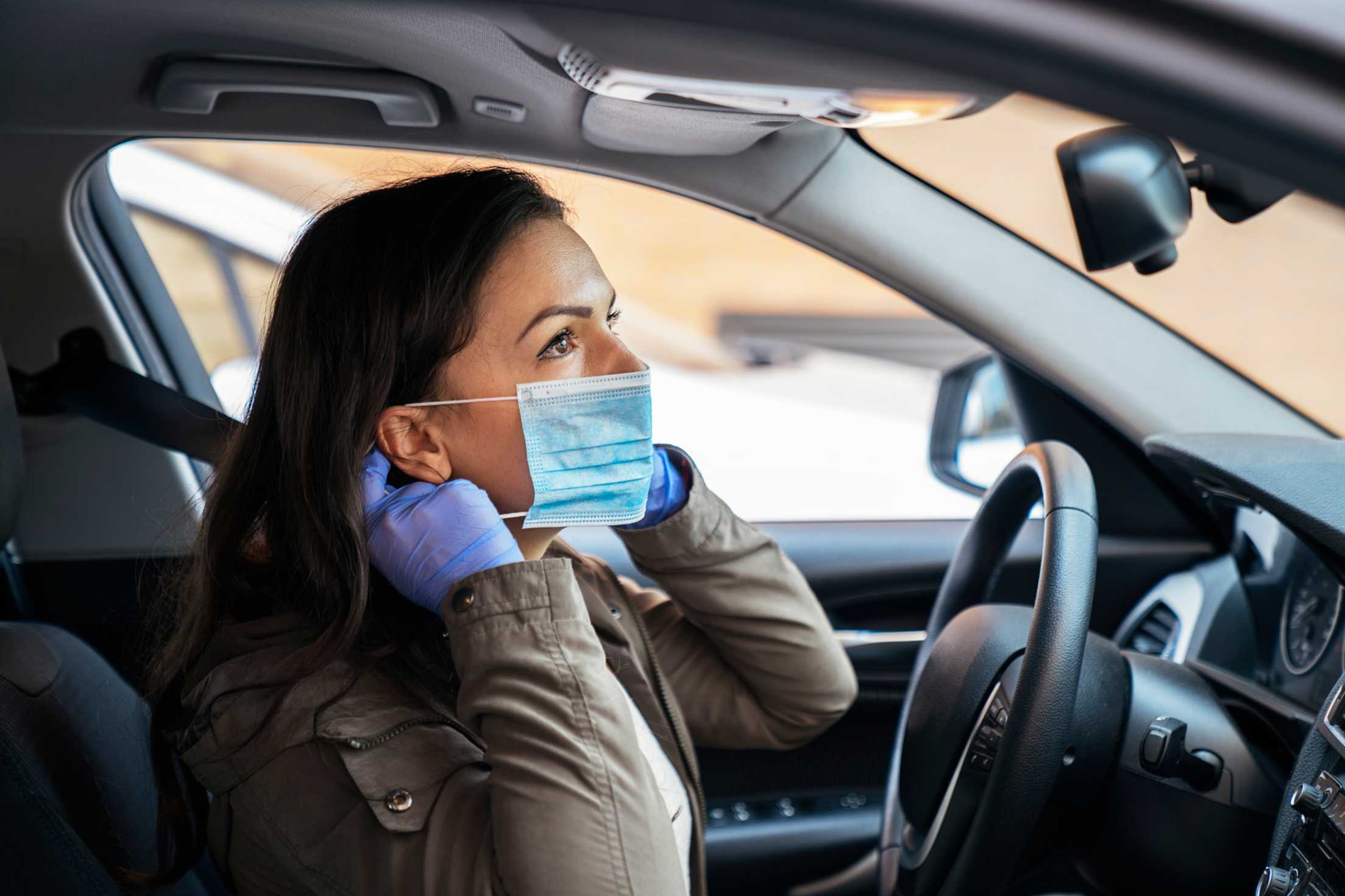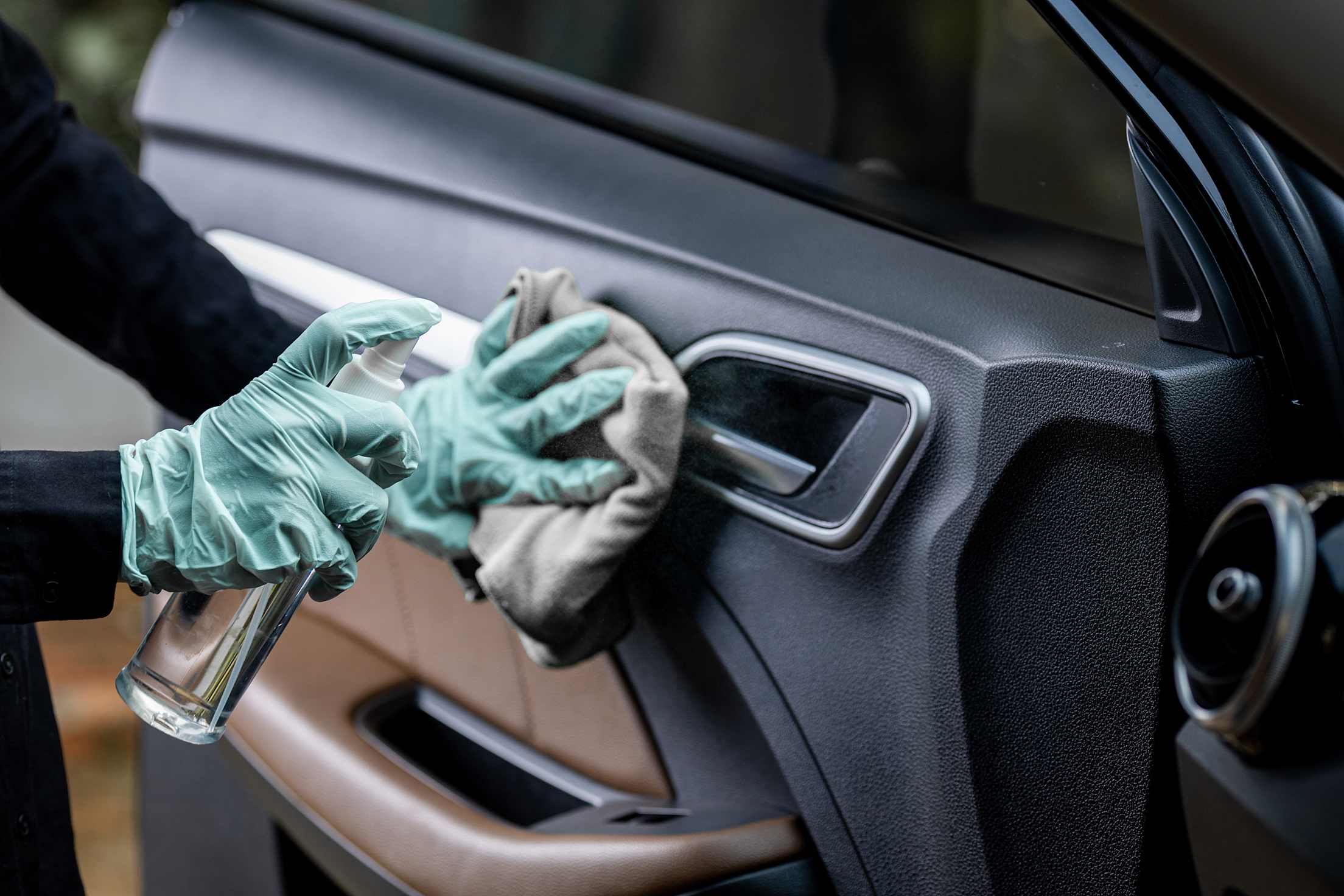
How to Safely Drive and Road Trip Right Now
Here are 6 tips for safer car travel during the coronavirus pandemic.

Amid coronavirus health concerns and restrictions, many Americans are opting to get out of the house and behind the wheel this summer. AAA forecasts 683 million people nationwide will take road trips in July, August, and September, down just 15 percent from last season. When done thoughtfully, road trips can be a safer alternative to higher-contact modes of transit, such as flying.
Dean Winslow, an infectious disease expert at Stanford University Medical Center, says that a road trip is probably less risky than going into a crowded airport, which in itself may be a higher risk than taking a flight. A short excursion could also have some health benefits. “People are really restless, and there’s probably huge psychological benefits from getting outside,” he says. “Just remember, there are reasonable things you can do to mitigate the risk.”
Winslow advises everyone to consider their personal risk factors before heading out. The Covid-19 outbreak is still in its first wave, with ongoing hot spots in states such as Arizona and California, he says. “There are varying degrees of risk with everything we do in life,” Winslow says. “The 100 percent safest thing to do—and someone in their 70s or 80s with underlying medical conditions should remember this—is to stay home.”
Here are six safety tips for hitting the road this summer.
1. Follow the guidelines.
Before you go, check the CDC Covid-19 tracker and the latest health advisories and mandates in every place you plan to visit. Stay abreast of local news and updates at your destination too. Frank Goodwin, an operations manager for AAA Auto Repair Centers, travels widely for his job and has observed different rules and compliance while crossing state lines. “I drove from Arizona to Utah, then Colorado and New Mexico, and it varied quite a bit as to the local situation,” he says. “Some people were wearing masks at the gas pump, for example, and some weren’t.”

Check your car's fluids and tire pressure before leaving.
2. Prepare your vehicle.
Prior to any road trip, check key features on your car, especially if you’ve kept it mostly parked for weeks or months. Goodwin advises checking the battery, tire pressure, and oil and coolant levels. “When a car sits for a long time without being used, the battery can be drained and go bad,” Goodwin says. “Most retail auto parts stores can go into the parking lot with you and test it really quick. AAA Auto Repair centers can do that as well.” Goodwin also recommends carrying at least two liters of water in case the engine overheats, as well as a first-aid kit and prescription medicines.

Many states across the West require masks in public spaces.
3. Pack protective supplies.
Ensure every member of your party has a clean, properly fitting mask. Many places, from individual businesses to entire states, require face coverings in public settings. Zainulabedin Shah, director of operations strategy for AAA Automotive Repair in Northern California, recommends bringing disinfectant wipes, hand sanitizer, and plenty of food as well. “Maintain the same [CDC-recommended] safety protocols regardless of where you are, even if there are relaxed laws,” he says. “You’re passing through and [potentially] bringing [the virus] with you, and might be taking [it] with you. It’s important to be conscious of that.”
4. Plan your itinerary.
It’s essential to plot every stop before setting out, as certain routes may be closed due to Covid-19. Shah recently set out on a road trip with his family only to find one of the major roads was closed. He recommends using AAA’s TripTik, a digital planning tool, to avoid the same mistake. If you plan to stay in a hotel or motel, call ahead to ensure the business is operating and following proper cleaning protocols for Covid-19. Many hotels describe their new cleaning regimens on their websites, Goodwin says. Contact restaurants and attractions as well to confirm that they’re open for business and ask about health safety guidelines.

Don't forget to clean the frequently touched surfaces in your car too.
5. Disinfect high-touch surfaces.
Publicly shared surfaces—door knobs, toilet handles, light switches, tabletops, gas pump handles, and such—may cause you some anxiety. So, disinfecting them may give you peace of mind, even though surface transmission of Covid-19 isn’t a top concern. “It has been shown experimentally that virus particles can exist on surfaces like plastic and metals,” says Winslow, the disease expert. “But my main advice would be simply washing hands after touching surfaces like that. It certainly doesn’t hurt to bring wipes and wipe down some of the surfaces, especially near your bed, like the bedside table and telephone.”
6. Drive safely.
AAA Northern California spokesperson Sergio Avila says law enforcement officers across the country have seen a surge in reckless driving on our emptier roads, "You can call it quarantine fatigue if you like, but at its heart it's just dangerous." About 60 percent of drivers in a survey conducted by AAA confessed to committing dangerous behavior behind-the-wheel between mid-May and mid-June, especially speeding.
With 683 million trips expected to be taken this summer, Avila advises everyone to be extremely cautious. “Our hospitals are already being stretched thin because of the pandemic, so after months of staying home, drivers need to break these dangerous trends before they make the situation worse.”
Keep rolling with AAA Auto Services, from routine maintenance to emergency roadside assistance.